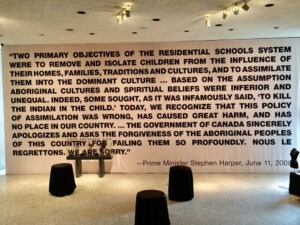
June 16, 2015; Boston Globe
Hillary and Bill Clinton are hardly the only celebrities to charge nonprofits hefty speaking fees for their appearances. Sometimes those other fee-charging celebs are no less controversial than the Clintons, especially when they’ve been charged with knowledge of deflated footballs in NFL playoff games. New England Patriots quarterback Tom Brady hasn’t spoken much about “Deflategate” in public, but he did accept $170,000 from the Salem State University Foundation to speak at Salem State last month.
Salem State’s speakers program has attracted other famous people over the years since it began in 1982, attracting Presidents Ford, Carter, Bush (George H.W.), and Clinton among other luminaries. Last year, Salem State even got Patriots coach Bill Belichick, a man of few words and minimal charisma, to speak. Brady’s speech helped the foundation raise $40,000 from ticket sales and sponsorships.
The interesting dynamic is that Brady’s speech occurred on the heels of the investigative report commissioned by the NFL (the Wells Report) concerning the deflated footballs used in the Patriots’ playoff game against the Indianapolis Colts. Although quiet about the controversy in other venues since the Salem State gig, at Salem State, Brady took questions on Deflategate from television sports reporter Jim Gray.
The Salem State foundation generates money for scholarships for Salem State students and other college projects. Oddly, however, Salem State resisted revealing the amount the foundation paid to Brady, spurning two public records requests filed by the Boston Globe, responding only on the third request, though it isn’t clear that the university was the source of the information on Brady’s fee. Robert Hohler’s article in the Globe indicates that school president Patricia Maguire Meservey “declined numerous requests to discuss Brady’s payment,” though she issued a statement defending and supporting the speaker series:
Sign up for our free newsletters
Subscribe to NPQ's newsletters to have our top stories delivered directly to your inbox.
By signing up, you agree to our privacy policy and terms of use, and to receive messages from NPQ and our partners.
“I remain confident that over the past 33 years the series has been, and will continue to be, an important community enrichment program designed to inform, engage and encourage discussion within the community.”
It isn’t clear that Brady donated any of his fee back to the school or the foundation. Maybe he fears that his $7 million annual salary (not including external endorsements for commercial products) might be in jeopardy due to the Wells report findings and the upcoming hearing of his appeal by the NFL’s grand poobah, Commissioner Roger Goodell, making the speaking fee a little more important than it usually would be.
There are two big questions looming in the background of the Brady story. One concerns the speaker series content itself. Is having Brady dodge Gray’s questions about the Wells report really appropriate for the college? Was the sellout crowd for Brady reflective of an appetite for “community enrichment” from Brady, or just a salacious session on a pro sports scandal? Well, it might have led to an interesting discussion of ethics in the public arena had Gray pursued that more academic tack and had Brady not avoided answering anything of substance, but that wasn’t likely given the news.
An equally big issue is nonprofits paying huge speakers’ fees. The money for Brady’s appearance came from the foundation, not from state coffers, but the fee Brady received could have paid for numerous Salem State scholarships (where tuition next year will be $9,246). It might be defended that the Brady appearance helped Salem State raise $40,000, but Hohler notes that Brady’s fee seems to have jumped since he won his fourth, albeit contested, Super Bowl, from his previous $75,000 to $100,000 per speech. Massachusetts has had a number of controversies regarding speakers’ fees, including the Globe’s 2013 report on the use of school funds for speakers’ fees at Westfield State by its former president, Evan Dobelle. Hohler noted the opinion of John Nucci, a spokesperson for Suffolk University, that paying huge fees for celebrity speakers is “not a prudent use of university resources that are better spent on students.”
Hillary Clinton gave her speaking fees to the Clinton Foundation for its international aid programs. It would be interesting to learn that other fabulously well paid celebrities like Tom Brady repurposed the speaking fees they received from nonprofits for charitable activities.—Rick Cohen













